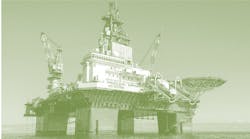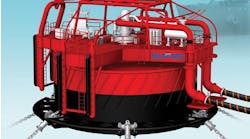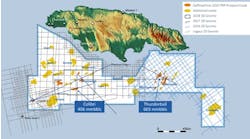Offshore staff
ABERDEEN, UK – Brazil’s continued upstream reforms have transformed the country’s E&P operations, said Decio Oddone, director general of the ANP, Tuesday at SPE Offshore Europe 2019.
Oddone, speaking at the Brazil-UK oil and gas presentation for investors, said most of the world’s largest oil companies now operate in the Santos and Campos basins, and that between 2017-21, there would be an enormous change in the amount of acreage available in Brazilian waters.
Over the next four months the ANP plans to stage four new bid rounds. Under the country’s new system of Permanent Offers, all acreage made available in previous rounds that was not taken up will be re-offered, with the first auction set for Sept. 10.
This will be followed in October by the 16th Concession bid round, and in November by what he described as the country’s largest ever bid round, related to the Transfer of Rights contract that Petrobras signed 10 years ago.
This covered some of the most promising acreage in the presalt Santos basin, and the ANP will table the surplus acreage that Petrobras could not exploit. This will comprise four finds with total estimated reserves in the range 6-15 Bbbl.
These could attract signature bonuses of around $30 billion, he claimed.
This year’s final auction will be another Pre-Salt round. A production-sharing round and a further bid round are in prospect for 2020.
According to Oddone, on average, wells in the presalt are producing 20,000 b/d, with some delivering 50-60,000 b/d – which he claimed was “unprecedented anywhere.”
In the Campos basin, in contrast, there are 500-600 wells each producing 2,000 b/d, and thousands more with very limited production. The ANP needs to attract the correct players to maximize each of these plays, he said.
“We saw what has been done in the UK to deal with this, and we would like to see something similar in Brazil. We have started the process of transferring mature fields to the smaller operators, and we need to keep doing this.”
The recovery rate is low, averaging around 21% for fields at the end of their lifespan in the Campos basin compared with a worldwide average of 35%, and up to 50% in parts of the UK and Norway.
“If we increase the recovery rate by just 1%, that would mean over 2 Bbbl more – just through operators applying the correct techniques in the reservoirs. That’s why we need new companies on our mature fields.”
But the real prize remains the presalt and other frontier basins coming up for exploration.
Over the next decade, the ANP expects a dramatic upturn in activity off Brazil, driven by the new investors, and this should push production above 7 Bbbl/d by the end of the 2020s, Oddone said, with more than 56 new platforms onstream by that point.
09/03/2019



